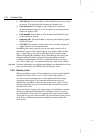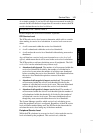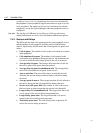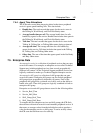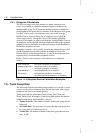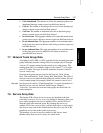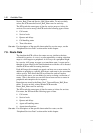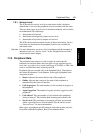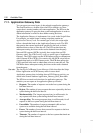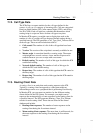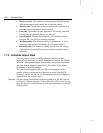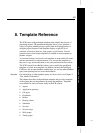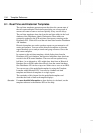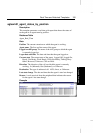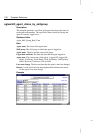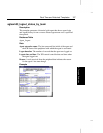
150 Available Data
7.11. Application Gateway Data
You can report on several types of data related to application gateways.
The G
EOTEL•Gateway feature allows the ICR to interface to a host
system that is running another call center application. The ICR uses the
application gateway to query the host system and application in order to
obtain information on which to base further routing decisions.
The Application Gateway is implemented via a node in the Script Editor.
For example, you might create a routing script that contains an
Application Gateway node. For certain types of calls, the script might
follow a branch that leads to the Application Gateway node. The ICR
then queries the external application specified by the node to obtain
additional data on how to route the call. The ICR can then base any
subsequent routing decisions on the results obtained from the query.
Network ICR systems (NICRs) typically have scripts that use ICR
Gateway nodes. The ICR Gateway node is a special type of Application
Gateway. The NICR scripts uses the ICR Gateway node to communicate
with Customer ICRs (CICRs). For certain calls, the NICR script follows
a branch that leads to an ICR Gateway node. The ICR then queries the
CICR specified in the node to obtain data on how to route the call. The
NICR then bases subsequent routing decisions on the results obtained
from the query.
See also:
The Intelligent CallRouter System Manager Guide describes the Script
Editor Application and ICR Gateway nodes in more detail.
Application gateway data, including data on ICR Gateway activity, are
stored in the central database Application_Gateway_Half_Hour table.
The ICR does not track real-time data for application gateways. The
statistics you can report on for application gateways include:
Requests. The number of requests sent to the host system during the
half-hour interval.
Rejects. The number of query requests that were rejected by the host
system during the half-hour interval.
Maximum delay. The longest response time, in milliseconds, for
any request to the host system during the half-hour interval.
Average delay. The average response time, in milliseconds, for all
requests to the host system during the half-hour interval.
Unavailable. The number of requests attempted while no host
system was available during the half-hour interval.
Errors. The number of errors that occurred for requests to the host
system during the half-hour interval.
Timeouts. The number of requests to the host system that timed out
during the half-hour interval.



